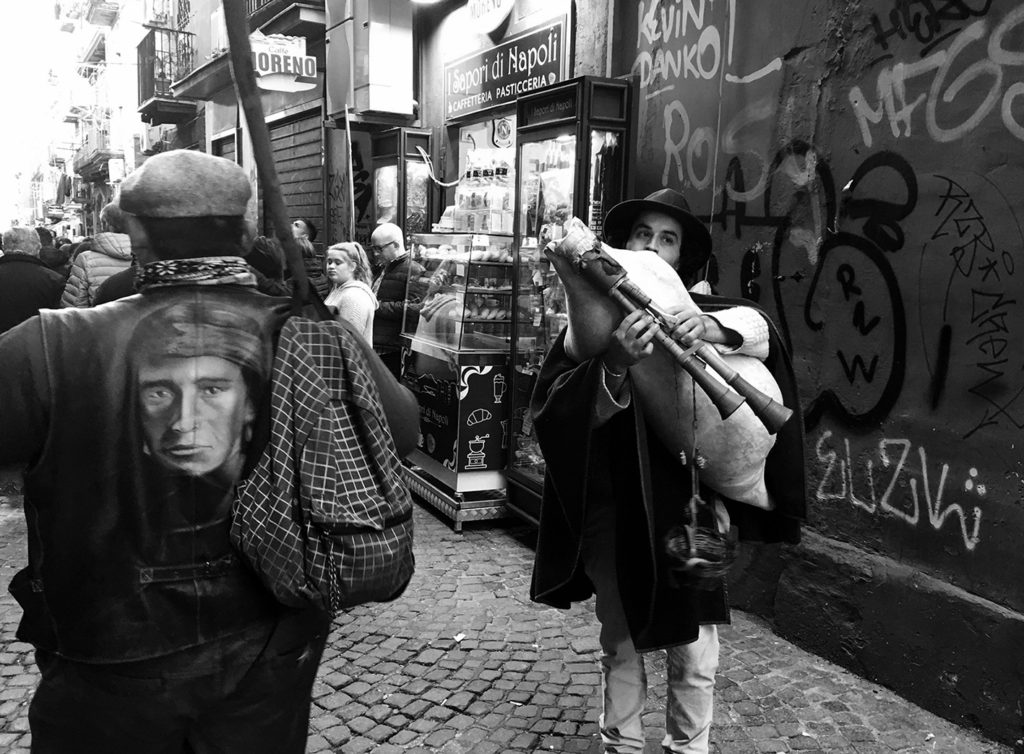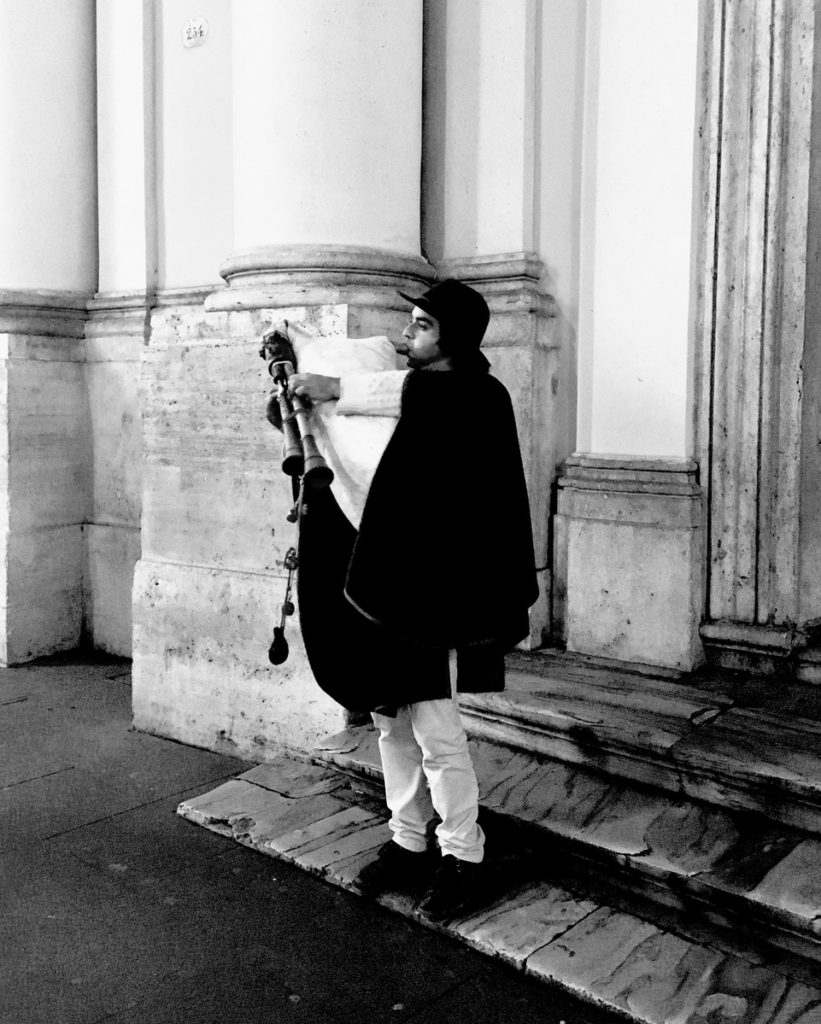Drawing from Traditional Music, Celebrating Traditional Music


In a time of uncertainty and social isolation, playing and singing music is tremendously sustaining. Music from our past, that draws us far back into past generations, can be especially pleasurable.
With this thought I reached out to my friend Massimiliano Di Carlo. My husband Robert and I met Massimiliano (Massi) on Christmas Eve when he was playing traditional Abruzzi bagpipes on Via Sistina near Rome’s Spanish Steps. The song was Tu Scendi Dalle Stelle, the Italian Christmas carol par excellence, with an easy 6/8 melody. Tu Scendi Dalle Stelle is beloved in Italy. The way Massi played it however was something very special, pulling out the notes into an evocative, melodious composition that left us suspended before him in wonder.
We then became friends, and also admirers of Massi and his life’s work. Music was in Massi’s ears from his childhood, beginning with the harmonies of his grandfather’s accordion and the traditional songs he heard sung by shepherds in the hills near his birthplace. Trained in classical music, but with a passion for oral tradition, or music that is passed from person to person by imitation and example rather than by written notations (like folk music), Massi began his professional life with a concert career, leaving Italy and traveling and performing for 10 years. But what he really loved was researching, documenting and playing music from the areas of Italy that were his home, from the agricultural and village communities in the center and south of Italy.
His work now is community based, with a strong focus on creativity and experimentation, and centers on recording and preserving the oral traditions of the elderly in a geographical area that covers Ascoli Piceno, Teramo and Amatrice.
I was sure, when the national quarantine began 50 days ago, that Massi would ensure that music remained the center of his life. And sure enough, I was not surprised at all when he wrote me sounding serene and… energized.
“When in those first days I perceived that we would be required to adapt to a new experience, I asked two of my dear friends who live in a house in the woods if I could move in temporarily with them. Ours’ is a very rare relationship because we share so many interests and life experiences. We all have an immense love of knowledge. We want to understand ourselves better, and this means acquiring a deeper familiarity with our own culture, with our own past and traditions, while at the same time working to understand more fully the culture of this moment. We aspire to contribute, quite deliberately carrying what we bring our studies of the past into the present. We want to knowingly construct the future, to do so with full awareness.
Our love for tradition means that we are always trying to discover what is not yet discovered. These days have been an excellent opportunity to deepen our research, learn new songs, dig into local mythology, and experiment with traditional local building materials. These are clay, plaster and iron, and we are building ovens, making floors and walls. We are crafting musical instruments. This is the work we are doing now.
Before the pandemic, we had always made life choices based on sharing everything, taking part as equals in both our practical and creative lives. That we have this unexpected time together now has proven a gift, and a further creative force. Because there are three of us, we most definitely are not suffering from solitude.
First thing in the morning I write music. I am working on a theatrical show called ‘Polesia’ which refers to a local divinity that metamorphosed into worship of Mary. The themes of the show come through by way of stories and songs, and are products of the places where I was born, which I left to travel and where I returned to find myself again.
One of my two friends, Mirko, is the grandson of a singer and organetto player. <The organetto is a portable pipe instrument, one of the most popular instruments of the thirteenth through sixteenth centuries, light in weight, traditionally equipped with a sling, and easy to carry about.> This man was a mentor to all of us, and his music we carry into our lives every day. So most days we will perform a cantata <vocal and instrumental> and study music for the project Voci matrices, that we are at work on together. By phone we are contacting, or are contacted by, elderly singers of the oral tradition, and they sing to us on the telephone. We listen, then we sing with them, and we learn their music. It happens that we hear songs that we have never heard before. During one of these recent calls I made a recording of Flavio, an 84 year old player from Cardanico Terme, who was playing the harmonica.
We all are familiar with self production of food. We grow our vegetables, make our own bread, produce our own cheese. We are all enthusiastic foragers of wild herbs and greens. What we do not have we buy from shepherds and local farmers and if there is still something we need there is a small supermarket here in the village.

January 10, 2020. Massi is singing with Giannina Malaspina in Monsano (Ancona)
Looking into the future, I envision there will be a bit less frenzy, less senseless running here and there. Human relationships will be stronger, and people more connected.”


Meet Marjorie
Insider’s Italy is an experienced family business that draws on my family’s four generations of life in Italy. I personally plan your travels. It is my great joy to share with you my family’s hundred-year-plus archive of Italian delights, discoveries and special friends.
